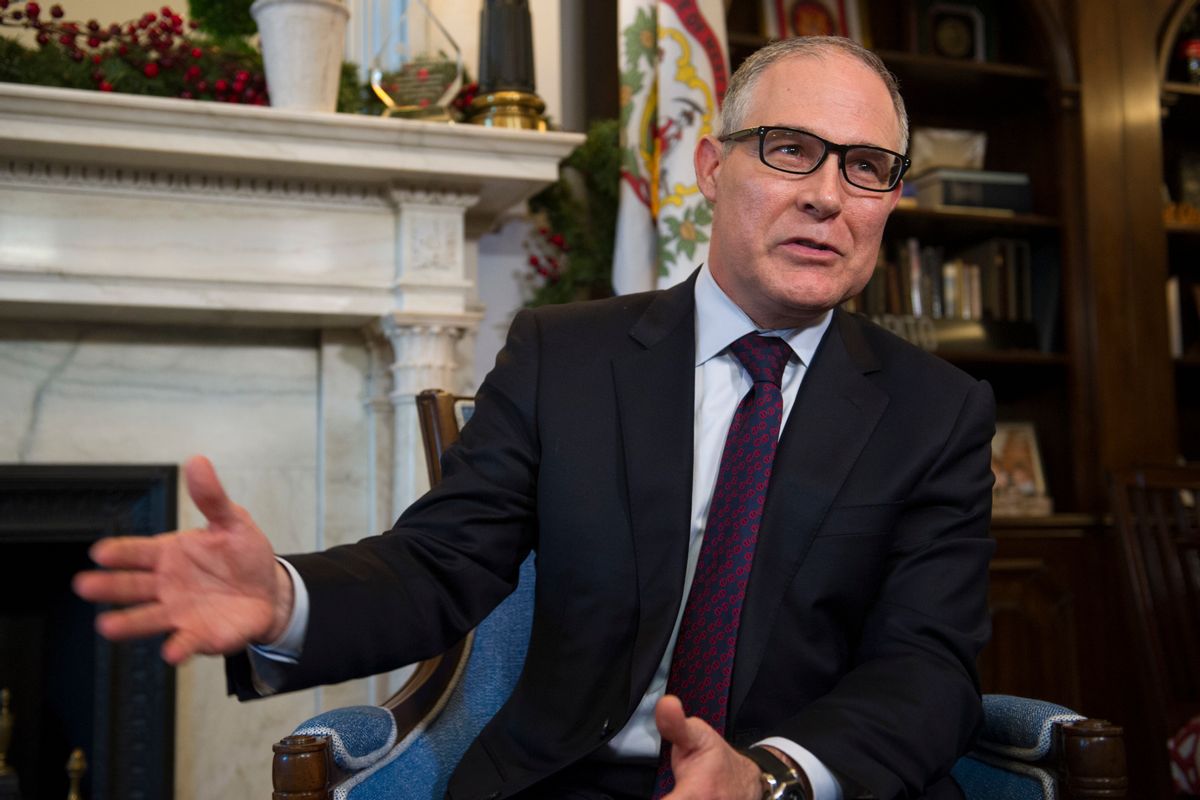The head of the Environmental Protection Agency, Scott Pruitt, insisted that talking about climate change as Texas continues to recover from the devastating Harvey storm, and Florida currently braces for the impact of Hurricane Irma, would be "very, very insensitive."
'To have any kind of focus on the cause and effect of the storm; versus helping people, or actually facing the effect of the storm, is misplaced," said Pruitt, a well-known climate skeptic, according to CNN.
"What we need to focus on is access to clean water, addressing these areas of superfund activities that may cause an attack on water, these issues of access to fuel," he continued. "Those are things so important to citizens of Florida right now, and to discuss the cause and effect of these storms, there's the... place (and time) to do that, it's not now."
President Donald Trump has also failed to acknowledge the consequences, or even the dangers of, climate change as well. The president's administration has instead attempted to roll back Obama-era pollution regulations in the name of job creation.
Houstonians saw record-setting amounts of water pouring into their communities, and the looming Hurricane Irma currently threatens southern Florida and forced the state to call for one of the largest evacuations in American history. Climate experts have repeatedly talked about, and predicted, how hurricanes and severe weather storms continue to intensify as a result of the warming of the climate.
Pruitt said that Congress should "address" the issue "at some point" but the Republican Party, as a whole, has shown little interest in doing so — including the governor of a state that is currently in the path of an extremely dangerous hurricane.
Florida's Republican Gov. Rick Scott has spent the majority of the past week urging Floridians to evacuate and prepare for Hurricane Irma, but for years Scott has chosen to ignore climate change.
The Washington Post elaborated:
But for all of Scott’s vigor in readying Florida for Irma’s wrath, his administration has done little over the years to prepare for what scientists say are the inevitable effects of climate change that will wreak havoc in the years to come. With its far-reaching coastline and low elevation, Florida is one of the states at greatest risk from rising sea levels, extreme weather events — including more-powerful hurricanes — and other consequences of a warming planet.
Local officials, academics and even some political allies say Scott has scarcely acknowledged the problem and, along with the Republican-led legislature, has shown little interest in funding projects to help the state adapt and become more resilient in the face of storms such as Irma.
"The science has been brought on a silver platter to Governor Scott, and he’s chosen not to do anything," said Kathy Baughman McLeod, a conservation expert who served on the Florida Energy and Climate Commission, according to the Post. Baughman's commission was dismantled once Scott took office in 2011.
"If there is climate action, it’s all coming from local and regional collaboration. There is no state leadership on climate change in Florida, period," she continued.
On Saturday, Scott said Irma is on track to be "the most catastrophic storm" in the state's history.



Shares